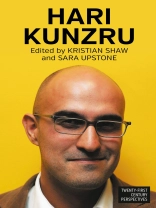This book is the first edited collection to focus on the work of contemporary author Hari Kunzru. It contains major new essays on each of his novels – The Impressionist, Transmission, My Revolutions, Gods Without Men, White Tears and Red Pill – as well as his short fiction and non-fiction writings. The collection situates Kunzru’s work within current debates regarding postmodernism, postcolonialism, and post-postmodernism, and examines how Kunzru’s work is central to major thematic concerns of contemporary writing including whiteness, national identity, Britishness, cosmopolitanism, music, space, memory, art practice, trauma, Brexit, immigration, covid-19, and populist politics. The book engages with current debates regarding the politics of publishing of ethnic writers, examining how Kunzru has managed to shape a career in resistance of narrow labelling where many other writers have struggled to achieve long-term recognition.
Table of Content
Introduction: ‘Adding Up to an Unknown’: the elusive fictions of Hari Kunzru – Kristian Shaw and Sara Upstone
1 ‘Walking into Whiteness’: The Impressionist and the routes of empire – Churnjeet Mahn
2 ‘It was the revenge of the uncontrollable world’: Transmission and COVID-19’ – Lucienne Loh
3 Turning the tide, or turning around in My Revolutions – Maëlle Jeanniard du Dot
4 Subjectivity at its limits: fugitive community in Kunzru’s short stories – Peter Ely
5 The fiction of every-era/no-era: Gods Without Men as ‘translit’ – Bran Nicol
6 ‘Eyes, ears, head, memory, heart’: transglossic rhythms in Memory Palace and Twice Upon a Time – Sara Upstone
7 ‘The ghost is him’: the echoes of racism, non-being and haunting in White Tears – David Hering
8 ‘Food for the wolves’: the rise of the alt-right in Red Pill – Kristian Shaw
9 ‘In the wake of all that’: a conversation with Hari Kunzru – Kristian Shaw
Index
About the author
Sara Upstone is Lecturer in English Literature at Kingston University












